Shows

NZZ AkzentDie Ukraine zielt mit Drohnen auf russisches Öl – was bringt das?
Seit August fliegen Kamikazedrohnen gezielt in Ölraffinerien in Russland. Die Ukraine trifft – doch längst nicht so oft, wie sie möchte. In dieser Folge erklärt der Datenjournalist Simon Huwiler, welche Wirkung auf Russlands Wirtschaft und Bevölkerung diese Angriffe haben und welche Strategie die Ukraine damit verfolgt.
Heutiger Gast: Simon Huwiler, Datenjournalist
Host: Simon Schaffer
Simon Huwilers Multimedia-Recherche über die Drohnenangriffe.
2025-10-2916 min
The HPS Podcast - Conversations from History, Philosophy and Social Studies of ScienceS5 E11 - Steven Shapin on the Social Life of Scientific KnowledgeThis week, Thomas Spiteri speaks with Steven Shapin, Professor Emeritus of the History of Science at Harvard. Shapin reflects on his path into the history and sociology of science and discusses the central concerns of his work: how knowledge is produced, the social foundations of trust in science, the embodied nature of knowledge, and the performance of expertise. He revisits Leviathan and the Air-Pump, co-authored with Simon Schaffer, outlining the Boyle–Hobbes controversy and showing how seventeenth-century scientific credibility depended on rhetoric, social standing, and performance, while highlighting the broader relevance of the book’s insights into the s...
2025-10-1950 min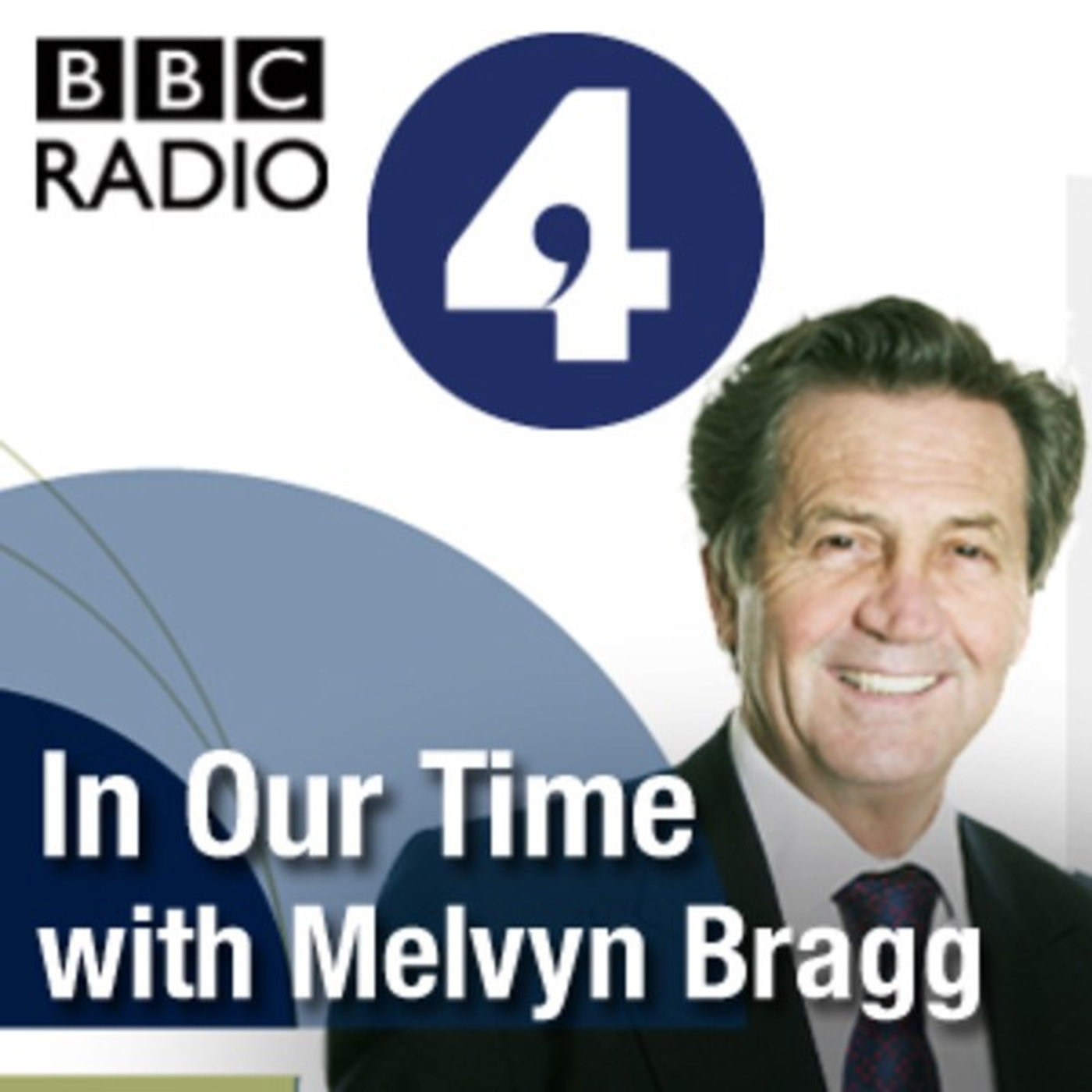
In Our Time With Melvyn BraggThe Time Machine (Archive Episode)Melvyn Bragg and guests discuss the ideas explored in HG Wells' novella, published in 1895, in which the Time Traveller moves forward to 802,701 AD. There he finds humanity has evolved into the Eloi and Morlocks, where the Eloi are small but leisured fruitarians and the Morlocks live below ground, carry out the work and have a different diet. Escaping the Morlocks, he travels millions of years into the future, where the environment no longer supports humanity.
With Simon Schaffer Professor of History of Science at Cambridge University Amanda Rees Historian of science at the University of York And Simon James...
2025-10-1654 min
In Our TimeThe Time Machine (Archive Episode)Melvyn Bragg and guests discuss the ideas explored in HG Wells' novella, published in 1895, in which the Time Traveller moves forward to 802,701 AD. There he finds humanity has evolved into the Eloi and Morlocks, where the Eloi are small but leisured fruitarians and the Morlocks live below ground, carry out the work and have a different diet. Escaping the Morlocks, he travels millions of years into the future, where the environment no longer supports humanity.
With Simon Schaffer Professor of History of Science at Cambridge University Amanda Rees Historian of science at the University of York And Simon James...
2025-10-1652 min
Réalisé Sans Trucage🦸♂️LES 4 FANTASTIQUES, Y-A-T-IL UN FLIC, DANGEROUS ANIMALS & ÉVANOUIS 😱➡ POUR DÉCOUVRIR NOTRE CONTENU EXCLUSIF 😍 : https://realisesanstrucage.supercast.com🎬 Les rattrapages de l'été 2025 :🔥 Les 4 Fantastiques : Premiers Pas de Matt Shakman🚨 Y-a-t-il un flic pour sauver le monde d'Akiva Schaffer😱 Évanouis de Zach Cregger💔 Valeur Sentimentale de Joachim Trier🦈 Dangerous Animals de Sean Byrne🎬 Mais aussi, vite fait mal fait : 🚗 Last Stop : Yuma County de Francis Galluppi🏥 En première ligne de Petra Volpe🍻 Le Roi Soleil de Vincent Maël Cardona...
2025-09-051h 38
The RiftDHS TARGETS Online Right Wing Influencers For “ANTISEMITISM”? | The Rift | Guest: Simon Goddek⇩ FOLLOW US EVERYWHERE ⇩https://linktr.ee/therifttv__Guest: Simon Goddek⇩ SHOW SPONSORS⇩➤ WELLNESS PAY: If you have an HSA or FSA, you could be getting up to 35% back on everyday wellness purchases—not just doctor visits or prescriptions, but also supplements, protein powder, sleep trackers, cold plunges, and more. Wellness Pay makes it easy by scanning your receipts or linked card for eligible items, handling doctor’s notes when needed, and ensuring everything is HIPAA secure and IRS compliant. Most users find hundreds or even thousands in savings from purchases they’ve already made. Visit https://ww...
2025-08-152h 09
The RiftFuentes vs. THE WORLD? Tucker and Candace RAMP UP Attacks | The Rift | Guest: Simon Goddek⇩ FOLLOW US EVERYWHERE ⇩https://linktr.ee/therifttv__Following the Candace Owens and Nick Fuentes interview, it seems like the cavalry has been called against Nick - including Tucker Carlson, Elon Musk, and everyone else who’s been looking to take Nick down over the last 10 years - will they be successful, or will Nick emerge bigger and more influential than ever?Guest: Simon Goddek⇩ SHOW SPONSORS⇩➤ WELLNESS PAY: If you have an HSA or FSA, you could be getting up to 35% back on everyday wellness purchases—not just doctor visits or prescriptions, but also suppl...
2025-08-141h 57
NZZ AkzentDie verschwiegene Klinik für Superreiche
Psychologischer Rundum-Service für rund 400 000 Euro im Monat. Das zahlen kriselnde Royals, süchtige CEO und Fussballstars für einen Aufenthalt in «The Balance» auf Mallorca. Aber ist mehr denn wirklich mehr? Inlandsredaktor Simon Hehli hat sich das Schweizer Unternehmen auf der Insel angeschaut.
Gast: Simon Hehli, NZZ-Redaktor Inland
Host: Simon Schaffer
Simons Erlebnisse in der Luxusklinik zum Nachlesen.
Informiere dich kurz, kompakt und fokussiert über das Weltgeschehen mit unserem täglichen Newsletter, dem «NZZ Briefing». Jetzt kostenlos registrieren und abonnieren.
Hinterlegen unter NZZ Briefing:
Lust auf noch mehr digitale Inhalte der NZZ? Pr...
2025-05-2717 min
NZZ AkzentAuschwitz: Zwei Überlebende erzählen
Am 27. Januar 1945 wurde das Vernichtungslager Auschwitz befreit. Die Brüder Alfred und Rudolf Popper überlebten, aber redeten seitdem kaum darüber.
Heutiger Gast: Simon Hehli, Redaktor Inland
Host: Simon Schaffer
Weitere Informationen zum Thema: https://www.nzz.ch/schweiz/80-jahre-auschwitz-wir-waren-schon-lange-keine-kinder-mehr-wir-mussten-erwachsen-sein-um-zu-ueberleben-ld.1867824
Informiere dich kurz, kompakt und fokussiert über das Weltgeschehen mit unserem täglichen Newsletter, dem «NZZ Briefing». Jetzt kostenlos registrieren und abonnieren unter go.nzz.ch/briefing
2025-01-2722 min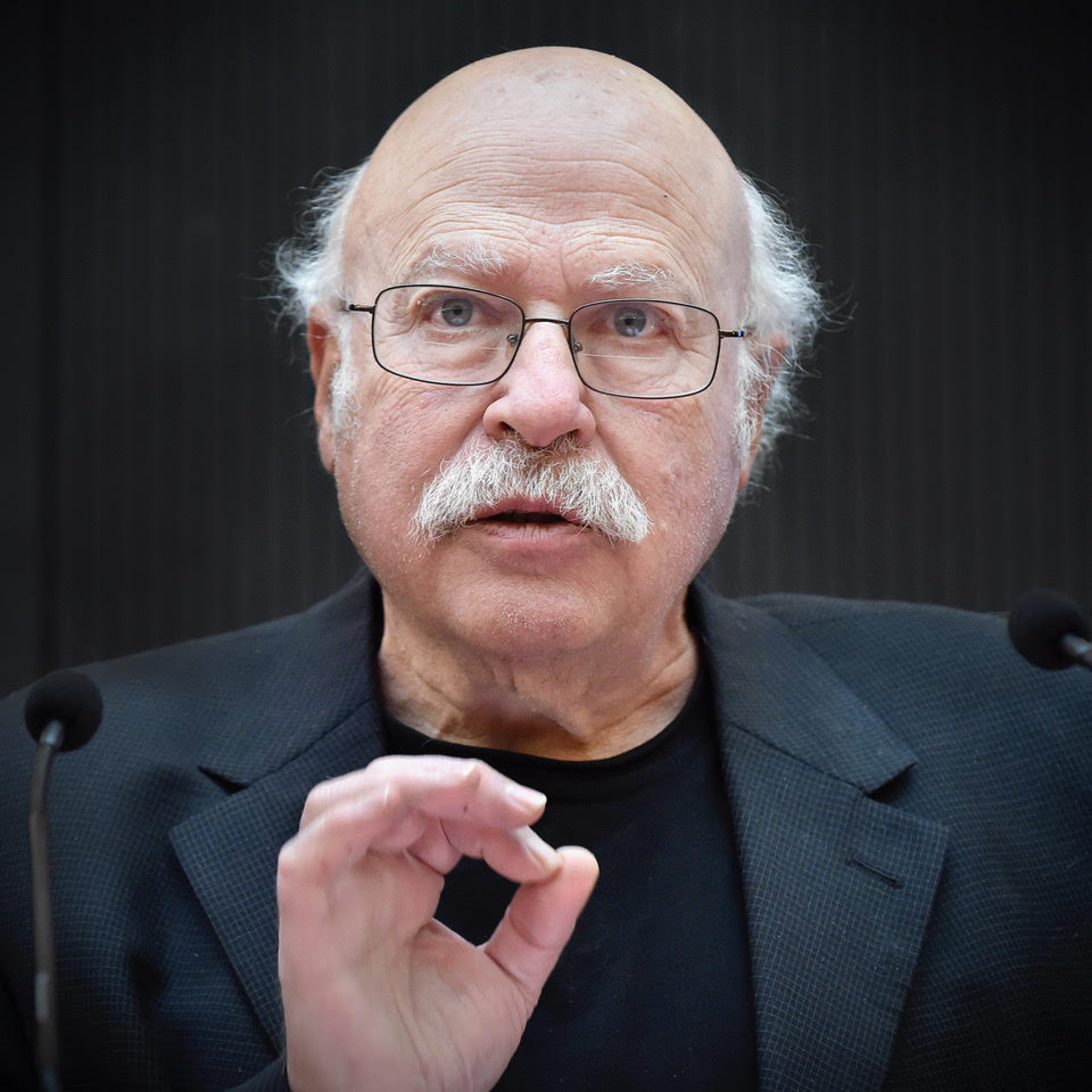
The Well-Seasoned Librarian: Mixing Cookbooks and ConversationSteven Shapin Ph.D (Eating and Being: A History of Ideas about Our Food and Our Selves) Well Seasoned Library Season 15 Episode 12Author Bio: Steven Shapin joined Harvard in 2004 after previous appointments as Professor of Sociology at the University of California, San Diego, and at the Science Studies Unit, Edinburgh University.
His books include Leviathan and the Air-Pump: Hobbes, Boyle, and the Experimental Life (Princeton University Press, 1985 [new ed. 2011]; with Simon Schaffer), A Social History of Truth: Civility and Science in Seventeenth-Century England (University of Chicago Press, 1994), The Scientific Revolution (University of Chicago Press, 1996; now translated into 16 languages), Wetenschap is cultuur (Science is Culture) (Amsterdam: Balans, 2005; with Simon Schaffer), The Scientific Life: A Moral History of a Late Modern...
2024-12-0332 min
The HPS Podcast - Conversations from History, Philosophy and Social Studies of ScienceS4 Ep 3 - Simon Schaffer on 'Leviathan and the Air-Pump: 40 years later' (Part 2)This episode forms Part 2 of our extended interview with the celebrated historian of science, and master communicator, Professor Simon Schaffer.Today, we continue to focus our discussion on the book Simon co-wrote with Steven Shapin in the early 1980s, Leviathan and the Air-Pump. Simon reveals fascinating insights into the production of the book, including his many deep dives into rare books collections, as well as the back and forth of typewritten pages between Simon in London and Steven in Edinburgh. Simon also talks about the rise to prominence of the publication, highlighting the crucial role...
2024-10-0226 min
The HPS Podcast - Conversations from History, Philosophy and Social Studies of ScienceS4 Ep 2 - Simon Schaffer on 'Leviathan and the Air-Pump: 40 years later' (Part 1)This episode is the first of two in which the celebrated Professor of History of Science, Simon Schaffer, discusses the famous HPS publication, Leviathan and the Air-Pump: Hobbes, Boyle and the Experimental Life, which Simon co-wrote with another esteemed HPS scholar, Steven Shapin, in the early 1980s. The book went on to become one of the most well-known across both HPS and STS, with next year marking 40 years since its first release.In todays episode, Simon discusses his own academic story, introduces us to the books main themes and aims, and muses on why it w...
2024-09-2526 min
Anything Else?003 - Blaire White EXPOSES Elijah Schaffer, Brittany Simon Goes After Destiny’s SonBlaire White claims Eljiah Schaffer SA her gay friend, Trump will win in a landslide, Brittany Simon goes after Destiny's son and Qorantos quits KoK...
Support the podcast on Patreon and get access to the video podcast without having to wait a week!
Follow Destiny on Stream, Youtube, Twitter, Instagram, Reddit
Follow Dan on Youtube, Twitter
Check Out My Amazon: https://www.amazon.com/shop/destiny
Buy My Merch: https://shop.destiny.gg/
2024-07-013h 30
In Our Time: ScienceNikola TeslaMelvyn Bragg and guests discuss the Serbian-American inventor Nikola Tesla (1856-1943) and his role in the development of electrical systems towards the end of the nineteenth century. He made his name in New York in the contest over which current should flow into homes and factories in America. Some such as Edison backed direct current or DC while others such as Westinghouse backed alternating current or AC and Nikola Tesla’s invention of a motor that worked on AC swung it for the alternating system that went on to power the modern age. He ensured his reputation and ideas bu...
2024-05-0252 min
In Our TimeNikola TeslaMelvyn Bragg and guests discuss the Serbian-American inventor Nikola Tesla (1856-1943) and his role in the development of electrical systems towards the end of the nineteenth century. He made his name in New York in the contest over which current should flow into homes and factories in America. Some such as Edison backed direct current or DC while others such as Westinghouse backed alternating current or AC and Nikola Tesla’s invention of a motor that worked on AC swung it for the alternating system that went on to power the modern age. He ensured his reputation and ideas bu...
2024-05-0252 min
INSIDE hörenINSIDE Küche-Talk (Maximilian Linden von Dross&Schaffer)
In kurzweiligen, aber nicht minder informativen 23 Minuten INSIDE Küche-Talk gibt Dross&Schaffer-Geschäftsführer Maximilian Linden Einblick in die Struktur des Händler-Netzwerks und in das, was man auf Neudeutsch "Mindset" nennt.
Das hat Spaß gemacht, nicht nur, weil Dross&Schaffer sich in der Kommunikation bislang eher zurückhaltend gegeben hat!
2023-12-0722 min
The Virtual CISO MomentS5E55 - A Conversation with Simon JaninSimon Janin is the CEO of X80. He is a Technology Entrepreneur with strong expertise in Security, Computer Science and Software as a Service. He is a prior member of the Swiss Military Intelligence CNO unit, founded three companies, and made contributions to the fields of secure protocols, financial infrastructure and cyber security.
2023-10-3124 min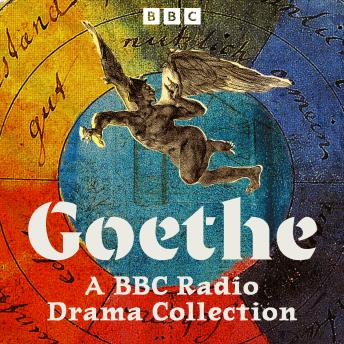
Download Incredible Full Audiobooks in Fiction, LGBTQ+Goethe: A BBC Radio Drama Collection: Six Full-Cast Dramatisations including Faust, The Sorrows of Young Werther and more by Johann Wolfgang Von GoethesPlease visithttps://thebookvoice.com/podcasts/1/audiobook/692422to listen full audiobooks.
Title: Goethe: A BBC Radio Drama Collection: Six Full-Cast Dramatisations including Faust, The Sorrows of Young Werther and more
Author: Johann Wolfgang Von Goethes
Narrator: Eileen Aitkin, Gabriel Woolf, Jack Farthing, Daisy Edgar-Jones, Joel Maccormack, Ronald Pickup, Full Cast, David Suchet, Melvyn Bragg, Frances Jeater, Simon Callow, Anton Lesser
Format: Unabridged Audiobook
Length: 17 hours 5 minutes
Release date: October 5, 2023
Genres: LGBTQ+
Publisher's Summary:
A collection of seminal dramatised pieces by the great German polymath Johann Wolfgang Goethe was a colossus of German literature and a true Renaissance man. A novelist, dramatist...
2023-10-055h 05
Download New Full Audiobooks in Fiction, HistoricalGoethe: A BBC Radio Drama Collection: Six Full-Cast Dramatisations including Faust, The Sorrows of Young Werther and more by Johann Wolfgang Von GoethesPlease visithttps://thebookvoice.com/podcasts/1/audiobook/692422to listen full audiobooks.
Title: Goethe: A BBC Radio Drama Collection: Six Full-Cast Dramatisations including Faust, The Sorrows of Young Werther and more
Author: Johann Wolfgang Von Goethes
Narrator: Eileen Aitkin, Gabriel Woolf, Jack Farthing, Daisy Edgar-Jones, Joel Maccormack, Ronald Pickup, Full Cast, David Suchet, Melvyn Bragg, Frances Jeater, Simon Callow, Anton Lesser
Format: Unabridged Audiobook
Length: 17 hours 5 minutes
Release date: October 5, 2023
Genres: Historical
Publisher's Summary:
A collection of seminal dramatised pieces by the great German polymath Johann Wolfgang Goethe was a colossus of German literature and a true Renaissance man. A novelist, dramatist...
2023-10-055h 05
Strukturiert selbstständig – der Business-Podcast für SoloselbstständigeWarum es hilfreich ist, dein Warum zu kennen – Christina Grunert im Interview#36 – Warum ist es so hilfreich mit seinem Warum auseinanderzusetzen? Rund um das Thema Warum habe ich die Positionierungs- und Warum-Expertin Christina Grunert eingeladen.Außerdem erfährst du im Interview,was der Unterschied zwischen Warum, Mission und Vision ist,was es mit Simon Sineks Golden Circle auf sich hat undwie ich mein Warum mit Christinas Hilfe gefunden habe.💻 Hier findest du Christina Grunert online:Website: https://www.christina-grunert.de/LinkedIn: https://www.linkedin.com/in/christina-grunert/💬 Kostenloses StrategiegesprächDu möchtest dein Business besser strukturieren, um mehr geschafft zu kriegen und...
2023-08-2927 min
I Don't Speak German109: News Roundup - Schaffer, America First, Buffalo ShooterIn a depressing but necessary News Roundup episode, we cover the recent apparent career problems of Elijah Schaffer, the weird implosion of Nick Fuentes' America First Foundation, and... and here comes the depressing part... the recent nazi massacre in Buffalo, New York. This episode is respectfully dedicated to the victims of this crime. Content Extremely Warnings Show Notes: Please consider donating to help us make the show and stay ad-free and independent. Patrons get exclusive access to at least one full extra episode a month plus all backer-only back-episodes. ...
2022-05-171h 08
Entre Nous - der Medienpodcast von Schweizer Journalist:inWas wollen junge Journalisten?Simon Schaffer von JJS
In dieser Ausgabe stellen wir 30 Talente unter 30 vor - einer von ihnen ist Simon Schaffer, 25. Als Co-Präsident von Junge Journalistinnen und Journalisten Schweiz weiß er, warum sich Menschen heute noch für diesen Beruf begeistert. Und: Was sie abschreckt.
Am Mikrofon: Samantha Zaugg und Charlotte Theile, Co-Chefredaktorinnen Schweizer Journalist:in
Hier findet ihr das Jugend-Abo:https://shop.oberauer.com/medien/schweizer-journalist-in/499/schweizer-journalist-in-2022-01?number=
Junge Journalistinnen und Journalisten Schweiz: https://www.jjs.ch
2022-05-1654 min
JJS PodcastMental Health: Was wir mitnehmenSeit Sommer sprechen wir über Mental Health im Journalismus. Wir sprechen mit euch, ihr sprecht untereinander und wir bemerkten: Die Branche redet jetzt etwas mehr darüber.Das hat auch bei uns selber etwas ausgelöst, und das wollen wir mit euch Zuhause in der warmen Küche oder mit dem Wollschall und Kopfhörern unterwegs teilen. Livia, Gina und Simon haben zu Mental Health mit Branchenvertreterinnen, Expert_innen und mit verdammt mutigen und aufrichtigen Journis gesprochen, und daraus viel mitnehmen dürfen. Das wollten Sie gemeinsam besprechen - und mit euch teilen - als Vitaminbooster, sozusa...
2021-12-1221 min
Scho ghört?Mental Health in der PodcastbrancheWie geht es dir?Diese Frage hört man zwar häufig, aber wie oft ist sie ernst gemeint? Mit Simon Schaffer von den jungen Journalistinnen und Journalisten Schweiz JJS sprechen wir über Mental Health im Audiobusiness.Ausserdem diskutieren wir die Frage, ob Podcasts vom Publikum Geld verlangen sollten, und wir reden über die Akte Urwyler, den neuen Storytelling-Podcast von Blick/Elephant Stories.Links:Mental Health Podcast der JJSDie Akte Urwyler
2021-09-0842 min
Renegade Marketers UniteTransforming B2B Customers into Raving Fans"When the going gets tough, the tough hug their customers." That's the theme that emerged early on in CMO Huddles, and the going at that point in April 2020 surely was tough. As the world shut down, customer retention became a top priority for many B2B brands, with astounding results—customer success strategy revealed itself to be a key growth strategy. Customer-centric marketing does not only increase the likelihood of cross-sell and upsell opportunities, it also cultivates a healthy set of customer champions who are more than happy to refer prospects (and what's more convincing to buy th...
2021-08-2047 min
JJS PodcastPositive Psychologie im Journalismus: Anna MillerAnna Miller ist Journalistin, positive Psychologin sowie Gründerin und Coach beim «Digital Balance Lab». Sie kennt den Journalismus aus eigener Erfahrung und spricht in der neusten Folge über Fallstricke in unseren Newsrooms, in unserem Online-Verhalten und in unserem Selbstverständnis. Denn ja: Du kannst einiges tun, um dich besser zu fühlen. Allerdings musst du dafür erst analysieren, wo du stehst, wofür du stehst und was um dich herum nicht stimmt – oder eben schon. Mitarbeit: Livia Schmid, Gina Bachmann und Simon Schaffer. 01:00 über die Frage, ob Journis prädestiniert für Burnouts sind.06:38 über die Grenze, hi...
2021-07-2650 min
Human ResourcesThe Tree of LifeIn Woolsthorpe-by-Colsterworth near Grantham, Lincolnshire is a house, Woolsthorpe Manor and within the grounds of this house, an apple tree. The very tree a young Sir Isaac Newton sat under which started his exploration of gravity. We discover how one of England's greatest minds, science, and Lincolnshire is linked to Britain's slaving past.
Featuring Professor Simon Schaffer and Professor Kate Murphy.
A transcript for this episode is available here (shorturl.at/fqwCN).
CREDITS
Written by Moya Lothian-McLean
Produced by Renay...
2021-05-1932 min
RSDS RADIO SOCIETÀ DEI SOGNILongitudeMelvyn Bragg and guests discuss the search for Longitude while at sea. Following efforts by other maritime nations, the British Government passed the Longitude Act in 1714 to reward anyone who devised reliable means for ships to determine their longitude at sea. Mariners could already calculate how far they were north or south, the Latitude, using the Pole Star, but voyaging across the Atlantic to the Caribbean was much less predictable as navigators could not be sure how far east or west they were, a particular problem when heading for islands. It took fifty years of individual genius and collaboration in...
2021-05-1351 min
In Our Time: ScienceLongitudeMelvyn Bragg and guests discuss the search for Longitude while at sea. Following efforts by other maritime nations, the British Government passed the Longitude Act in 1714 to reward anyone who devised reliable means for ships to determine their longitude at sea. Mariners could already calculate how far they were north or south, the Latitude, using the Pole Star, but voyaging across the Atlantic to the Caribbean was much less predictable as navigators could not be sure how far east or west they were, a particular problem when heading for islands. It took fifty years of individual genius and collaboration...
2021-05-1350 min
In Our TimeLongitudeMelvyn Bragg and guests discuss the search for Longitude while at sea. Following efforts by other maritime nations, the British Government passed the Longitude Act in 1714 to reward anyone who devised reliable means for ships to determine their longitude at sea. Mariners could already calculate how far they were north or south, the Latitude, using the Pole Star, but voyaging across the Atlantic to the Caribbean was much less predictable as navigators could not be sure how far east or west they were, a particular problem when heading for islands. It took fifty years of individual genius and collaboration...
2021-05-1350 min
RSDS RADIO SOCIETÀ DEI SOGNIAlan TuringMelvyn Bragg and guests discuss Alan Turing (1912-1954) whose 1936 paper On Computable Numbers effectively founded computer science. Immediately recognised by his peers, his wider reputation has grown as our reliance on computers has grown. He was a leading figure at Bletchley Park in the Second World War, using his ideas for cracking enemy codes, work said to have shortened the war by two years and saved millions of lives. That vital work was still secret when Turing was convicted in 1952 for having a sexual relationship with another man for which he was given oestrogen for a year, or chemically castrated...
2020-10-1553 min
In Our Time: ScienceAlan TuringMelvyn Bragg and guests discuss Alan Turing (1912-1954) whose 1936 paper On Computable Numbers effectively founded computer science. Immediately recognised by his peers, his wider reputation has grown as our reliance on computers has grown. He was a leading figure at Bletchley Park in the Second World War, using his ideas for cracking enemy codes, work said to have shortened the war by two years and saved millions of lives. That vital work was still secret when Turing was convicted in 1952 for having a sexual relationship with another man for which he was given oestrogen for a year, or chemically...
2020-10-1553 min
In Our TimeAlan TuringMelvyn Bragg and guests discuss Alan Turing (1912-1954) whose 1936 paper On Computable Numbers effectively founded computer science. Immediately recognised by his peers, his wider reputation has grown as our reliance on computers has grown. He was a leading figure at Bletchley Park in the Second World War, using his ideas for cracking enemy codes, work said to have shortened the war by two years and saved millions of lives. That vital work was still secret when Turing was convicted in 1952 for having a sexual relationship with another man for which he was given oestrogen for a year, or chemically...
2020-10-1553 min
Renegade Marketers UniteHow B2B CMOs Can Prepare for 2021The challenges of 2020 have set the stage for big changes in 2021 (and beyond). For optimistic marketers, this means that 2020 is the fertilizer for a beautiful 2021, but it's going to take a progressive, agile, and strategic mindset to reap the rewards. To discuss upcoming changes in the way that buyers buy and sellers sell in the context of marketing, Brent Adamson, distinguished VP at Gartner, joins Drew for his fourth episode of Renegade Thinkers Unite. Joined by a live audience, Brent answers questions about how CMOs can plan for 2021, positing that marketers shouldn't necessarily be focused on creating...
2020-09-2558 min
New Books in ScienceSteven Shapin, "The Scientific Revolution" (U Chicago Press, 2018)“There was no such thing as the Scientific Revolution, and this is a book about it.” With this provocative and apparently paradoxical claim, Steven Shapin begins The Scientific Revolution (University of Chicago Press, 2018), his bold, vibrant exploration of the origins of the modern scientific worldview, now updated with a new bibliographic essay featuring the latest scholarship.Steven Shapin is the Franklin L. Ford Research Professor of the History of Science at Harvard University. His books include Leviathan and the Air-Pump (with Simon Schaffer), A Social History of Truth: Civility and Science in Seventeenth-Century England, and The Scientific Life...
2020-08-261h 14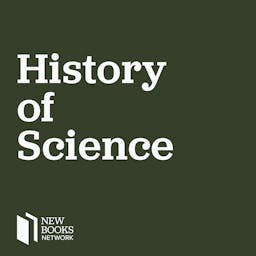
New Books in the History of ScienceSteven Shapin, "The Scientific Revolution" (U Chicago Press, 2018)“There was no such thing as the Scientific Revolution, and this is a book about it.” With this provocative and apparently paradoxical claim, Steven Shapin begins The Scientific Revolution (University of Chicago Press, 2018), his bold, vibrant exploration of the origins of the modern scientific worldview, now updated with a new bibliographic essay featuring the latest scholarship.Steven Shapin is the Franklin L. Ford Research Professor of the History of Science at Harvard University. His books include Leviathan and the Air-Pump (with Simon Schaffer), A Social History of Truth: Civility and Science in Seventeenth-Century England, and The Scientific Life...
2020-08-261h 11
In Our Time: CultureThe Time MachineMelvyn Bragg and guests discuss the ideas explored in HG Wells' novella, published in 1895, in which the Time Traveller moves forward to 802,701 AD. There he finds humanity has evolved into the Eloi and Morlocks, where the Eloi are small but leisured fruitarians and the Morlocks live below ground, carry out the work and have a different diet. Escaping the Morlocks, he travels millions of years into the future, where the environment no longer supports humanity.The image above is from a painting by Anton Brzezinski of a scene from The Time Machine, with the Time Traveller meeting...
2019-10-1751 min
In Our TimeThe Time MachineMelvyn Bragg and guests discuss the ideas explored in HG Wells' novella, published in 1895, in which the Time Traveller moves forward to 802,701 AD. There he finds humanity has evolved into the Eloi and Morlocks, where the Eloi are small but leisured fruitarians and the Morlocks live below ground, carry out the work and have a different diet. Escaping the Morlocks, he travels millions of years into the future, where the environment no longer supports humanity.The image above is from a painting by Anton Brzezinski of a scene from The Time Machine, with the Time Traveller meeting...
2019-10-1751 min
RSDS RADIO SOCIETÀ DEI SOGNIThe Time MachineMelvyn Bragg and guests discuss the ideas explored in HG Wells' novella, published in 1895, in which the Time Traveller moves forward to 802,701 AD. There he finds humanity has evolved into the Eloi and Morlocks, where the Eloi are small but leisured fruitarians and the Morlocks live below ground, carry out the work and have a different diet. Escaping the Morlocks, he travels millions of years into the future, where the environment no longer supports humanity.The image above is from a painting by Anton Brzezinski of a scene from The Time Machine, with the Time Traveller meeting the...
2019-10-1752 min
Renegade Marketers UniteFrom Shepherding to CMOing: How Simon Schaffer-Goldman Helps Case Paper Cut Through Simon Schaffer-Goldman, of Case Paper, is really just your run-of-the-mill CMO. Well, except maybe for starting out as a shepherd in New Zealand. Also, maybe his portfolio of stunning photography and his penchant for comedy writing are somewhat uncommon. Oh, and the willingness to lead a bold rebrand with a new approach that strays pretty far from the typical tone of B2B paper companies. Hm. Okay, maybe Simon isn't so run-of-the-mill after all. Though, run-of-the-mill could make for some pretty decent paper industry puns... We'll file that one away for now. On this week's RTU, Simon...
2019-10-1147 min
The Universe Speaks in NumbersThe Universe Speaks in Numbers: Simon Schaffer interviewed by Graham FarmeloScience writer Graham Farmelo in conversation with Simon Schaffer. Simon Schaffer is not only a leading historian of science but also a great teacher. He is without peer in his ability to illuminate how thinking about thinking about the natural world developed into our modern understanding of physics, often in ways unknown to most physicists today.Read more in Graham Farmelo's book The Universe Speaks in Numbers. Hosted on Acast. See acast.com/privacy for more information.
2019-09-0233 min
CineppraisalThe Woman in BlackThere’s something wrong in that massive house, in the middle of a lake, in the Edwardian English countryside, and it’ll take an insurance clerk (Daniel Radcliffe “Horns,” “Other Movies”) and a small town noble (Ciarán Hinds “Game of Thrones,” “There Will Be Blood”) to unravel a mystery of unspeakable horror. 2012’s “The Woman in Black” is a full-throated return to form for Hammer Films, the undisputed masters of horror in the 1960s and 70s. So, strap in because it’s going to get dark as Dax slowly realizes what this movie is really about!
Cineppraisal is an audio comm...
2019-08-311h 42
The Mom Confidential™The Art of Racing in the RainMilo Ventimiglia, Amanda Seyfried and Director, Simon Curtis talk to us about “The Art Of Racing In The Rain.” Get ready to have your heartstrings pulled because this film gave us all the feels imaginable! Milo has mastered being a fantasy dad and he crushes it once again! I loved hearing from him and what went into playing Denny. Amanda truly inspired me with her talk about living in the present and how she was amazed at what a great father Milo plays even though he doesn’t have children “yet.” Simon talks about several scenes and how decisions were made to ma...
2019-08-0640 min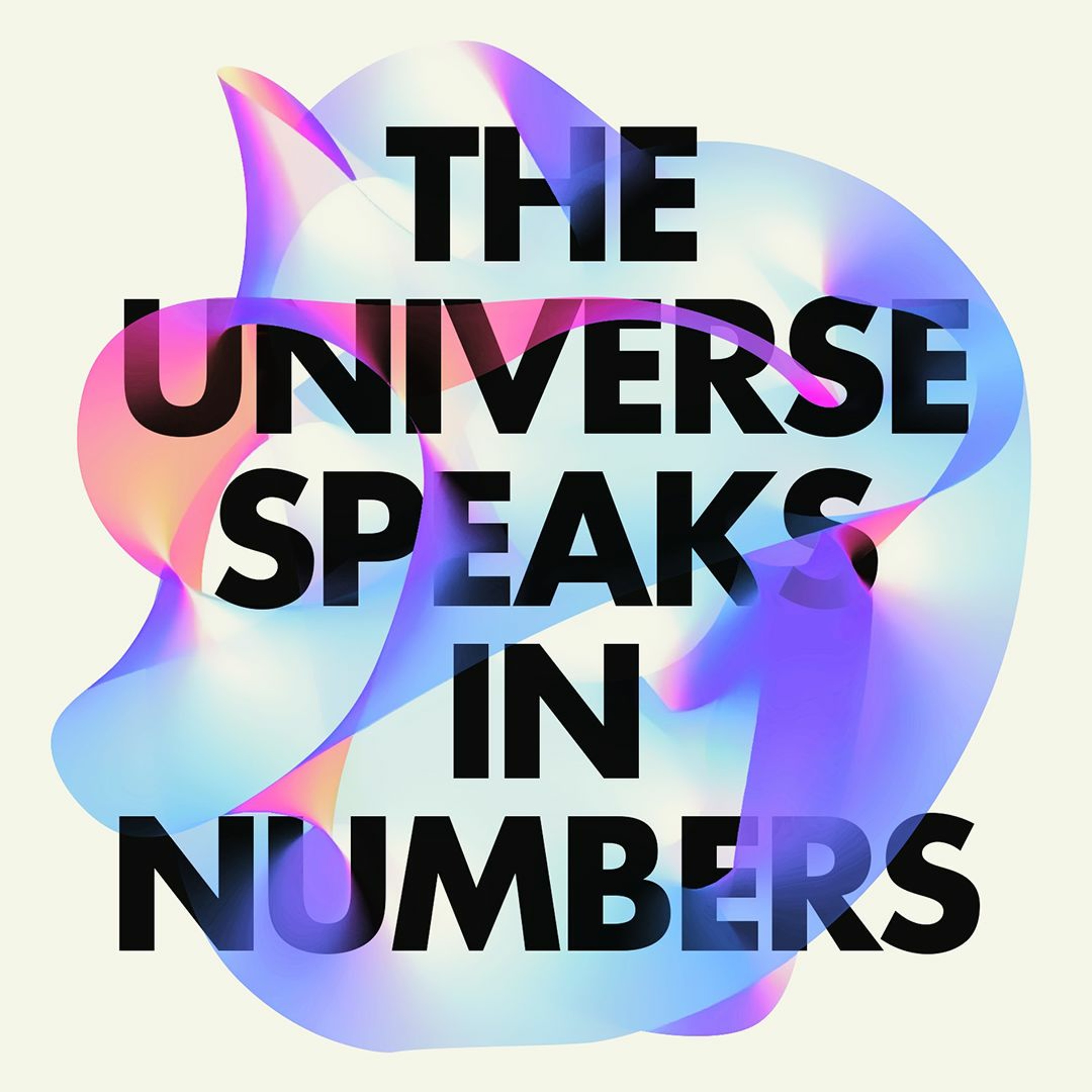
FaberBooksThe Universe Speaks in Numbers 13: Graham Farmelo interviews Lance Dixon‘The most perfect microscopic structures in the known universe’ – that is the exquisite description of sub-nuclear scattering amplitudes given by theorist Lance Dixon, based at the Stanford Linear Accelerator in California. Having made his name as a string theorist in the 1980s, Dixon became one of the leading pioneers in the field of scattering-amplitudes, developing a host of ingenious ideas and techniques. In this thoughtful interview, he describes why he switched his research focus, the fascination and importance of the amplitudes, and the prospects for the subject’s future.
This is one of twenty interviews given by world-class experts to Graham o...
2019-07-0918 min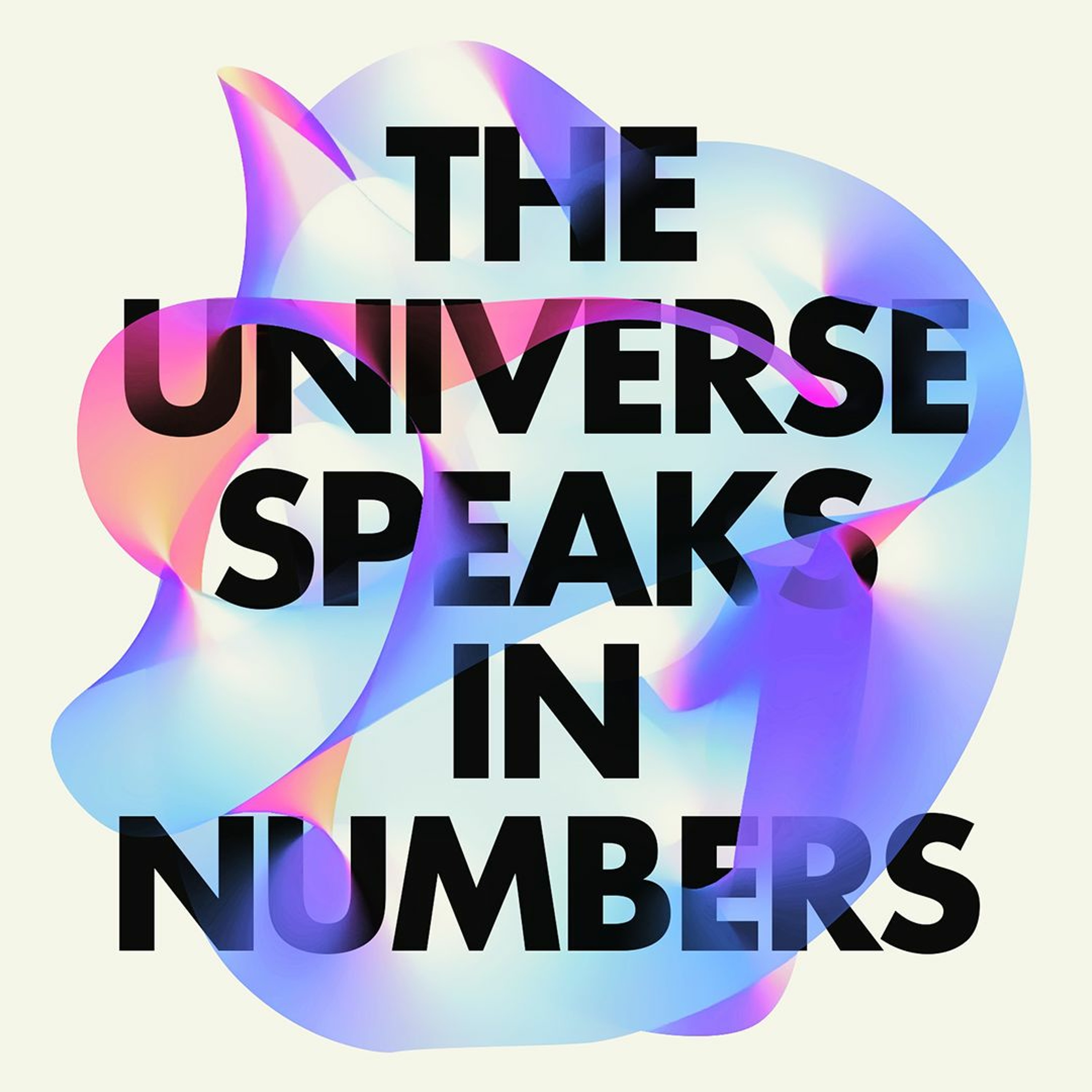
FaberBooksThe Universe Speaks in Numbers 12: Graham Farmelo interviews Robbert DijkgraafThe Dutchman Robbert Dijkgraaf is a rarity – not only is he a top-class mathematical physicist, he is also one of the world’s finest science communicators. In this bracing interview with Graham, Dijkgraaf lucidly describes the state of modern fundamental physics and the continually surprising – and extraordinarily productive – symbiosis between this science and modern mathematics. As Graham says: ‘Robbert gives us a real tour de force.’This is one of twenty interviews given by world-class experts to Graham on the themes he explores in his new book The Universe Speaks in Numbers. A new interview is posted every week.
Among the other in...
2019-07-0922 min
Context with Brad HarrisA Battle Against Medieval BarbarismToday, we explore the origin of the modern concept of a fact. We take facts for granted, but they represent an invaluable intellectual technology less than 400 years old, which was forged in a fight between two of history's brightest thinkers battling over the best way to rescue their society from the madness of medieval barbarism. There is a book that gives us a front row seat to that fight: Leviathan and the Air Pump, published by the historians of science Steve Shapin and Simon Schaffer. It covers the conflict between the Scientific Revolutionaries Thomas Hobbes and...
2019-07-0135 min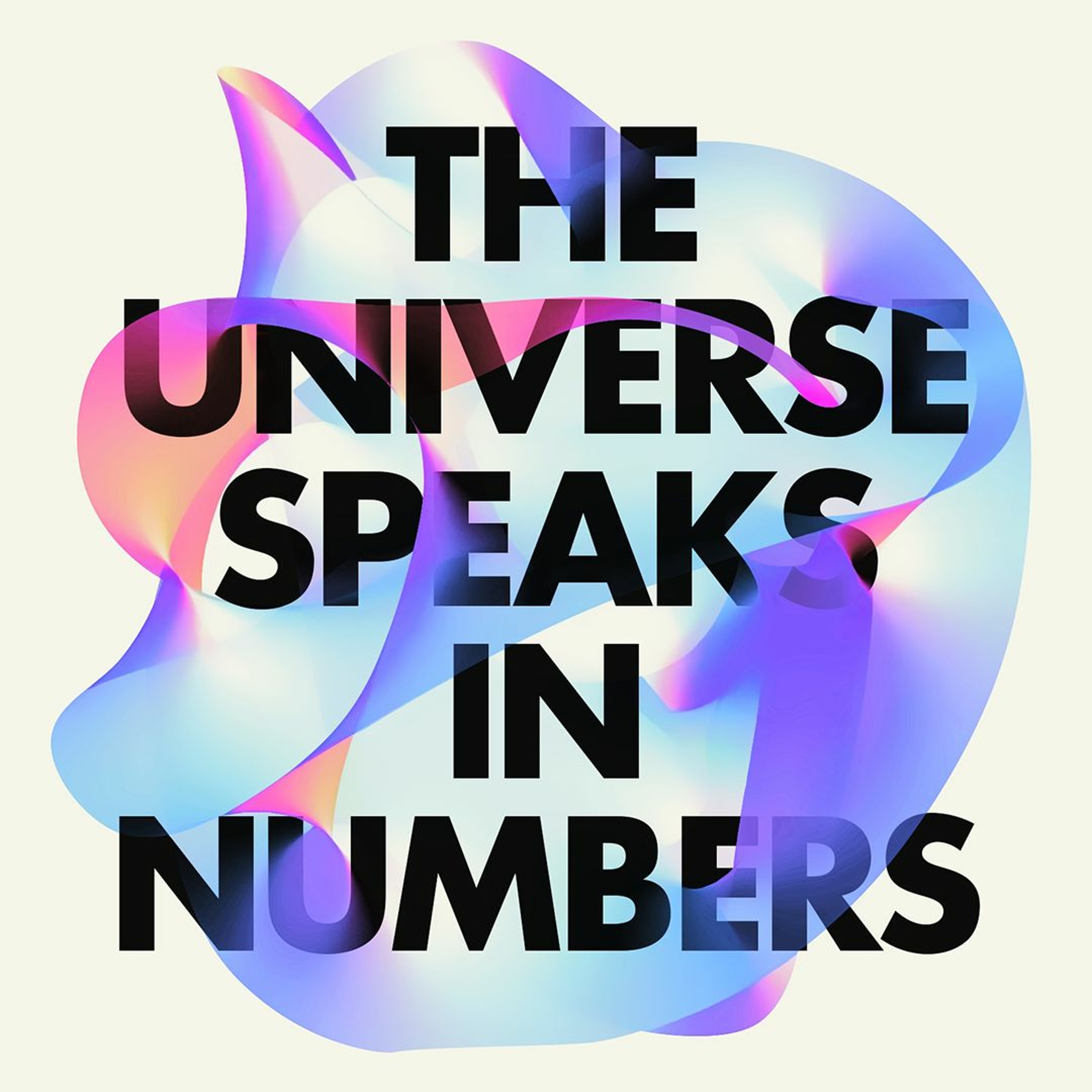
FaberBooksThe Universe Speaks in Numbers 11: Graham Farmelo interviews Greg MooreScience writer Graham Farmelo in conversation with Greg Moore.
Physics and mathematics seem to be in ‘pre-established harmony’, a phrase that has long been popular with physicists and mathematicians working at the subjects’ interface. Greg Moore, based at Rutgers University, has discovered many surprising new relationships between quantum field theories and the string framework and concepts in contemporary mathematics. In this interview, he eloquently describes examples of this and explains why he is promoting the notion of ‘physical mathematics’, a discipline that he believes is now well established, with a bright future.
This is one of twenty interviews given by world-clas...
2019-06-2418 min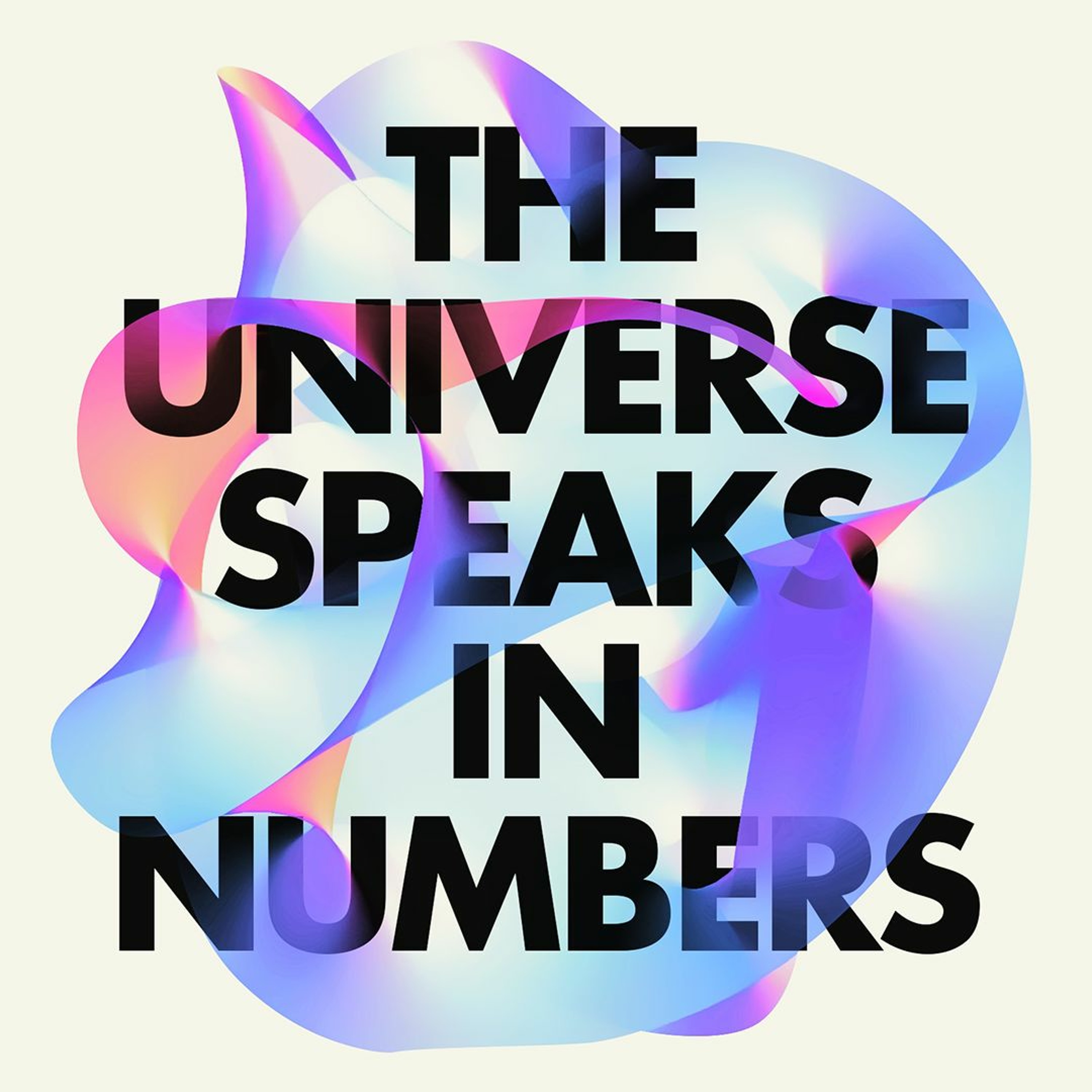
FaberBooksThe Universe Speaks in Numbers 10: Graham Farmelo interviews Freeman DysonScience writer Graham Farmelo in conversation with Freeman Dyson. Freeman Dyson talks about his being both a theoretical physicist and a mathematician, the troubled relationship between mathematics and physics in his youth, the impressive physicist he knew (no, it’s not Feynman) and string theory. This interview was recorded last summer at the IAS, Princeton, in Freeman’s office – and he’s as lively, counter-orthodox and fearless as ever.
This is one of twenty interviews given by world-class experts to Graham on the themes he explores in his new book The Universe Speaks in Numbers. A new interview is posted every we...
2019-06-1315 min
FaberBooksThe Universe Speaks in Numbers 9: Graham Farmelo interviews Michela MassimiWhat do philosophers of physics do, and what light might they shed on the work of today’s physicists and astronomers? Michela Massimi, a distinguished philosopher of science at the University of Edinburgh, discusses these and other matters with Graham in this lively interview, recorded last March in Michela’s office. She has a bracingly optimistic vision for her subject in the coming decades, as Graham heard.
This is one of twenty interviews given by world-class experts to Graham on the themes he explores in his new book The Universe Speaks in Numbers. A new interview is posted every week.
Amon...
2019-06-0722 min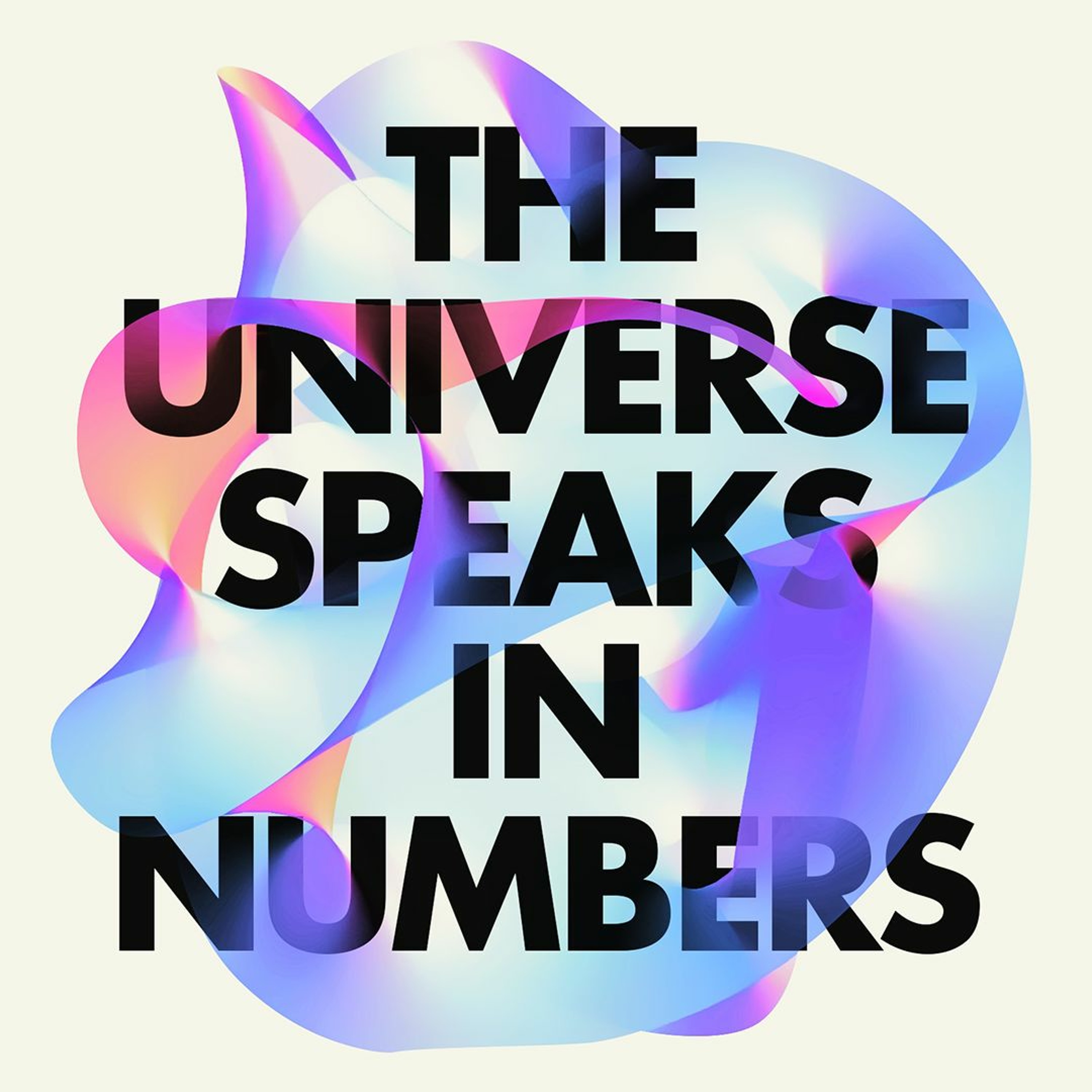
FaberBooksThe Universe Speaks in Numbers 3: Graham Farmelo interviews Simon SchafferScience writer Graham Farmelo in conversation with Simon Schaffer. Simon Schaffer is not only a leading historian of science but also a great teacher. He is without peer in his ability to illuminate how thinking about thinking about the natural world developed into our modern understanding of physics, often in ways unknown to most physicists today.
Based on Graham Farmelo's book The Universe Speaks in Numbers.
https://www.faber.co.uk/9780571321803-the-universe-speaks-in-numbers.html
2019-05-2833 min
RSDS RADIO SOCIETÀ DEI SOGNIAutomataMelvyn Bragg and guests discuss the history of real and imagined machines that appear to be living, and the questions they raise about life and creation. Even in myth they are made by humans, not born. The classical Greeks built some and designed others, but the knowledge of how to make automata and the principles behind them was lost in the Latin Christian West, remaining in the Greek-speaking and Arabic-speaking world. Western travellers to those regions struggled to explain what they saw, attributing magical powers. The advance of clockwork raised further questions about what was distinctly human, prompting Hobbes to...
2018-09-2052 min
In Our TimeAutomataMelvyn Bragg and guests discuss the history of real and imagined machines that appear to be living, and the questions they raise about life and creation. Even in myth they are made by humans, not born. The classical Greeks built some and designed others, but the knowledge of how to make automata and the principles behind them was lost in the Latin Christian West, remaining in the Greek-speaking and Arabic-speaking world. Western travellers to those regions struggled to explain what they saw, attributing magical powers. The advance of clockwork raised further questions about what was distinctly human, prompting Hobbes...
2018-09-2052 min
In Our Time: ScienceAutomataMelvyn Bragg and guests discuss the history of real and imagined machines that appear to be living, and the questions they raise about life and creation. Even in myth they are made by humans, not born. The classical Greeks built some and designed others, but the knowledge of how to make automata and the principles behind them was lost in the Latin Christian West, remaining in the Greek-speaking and Arabic-speaking world. Western travellers to those regions struggled to explain what they saw, attributing magical powers. The advance of clockwork raised further questions about what was distinctly human, prompting Hobbes...
2018-09-2052 min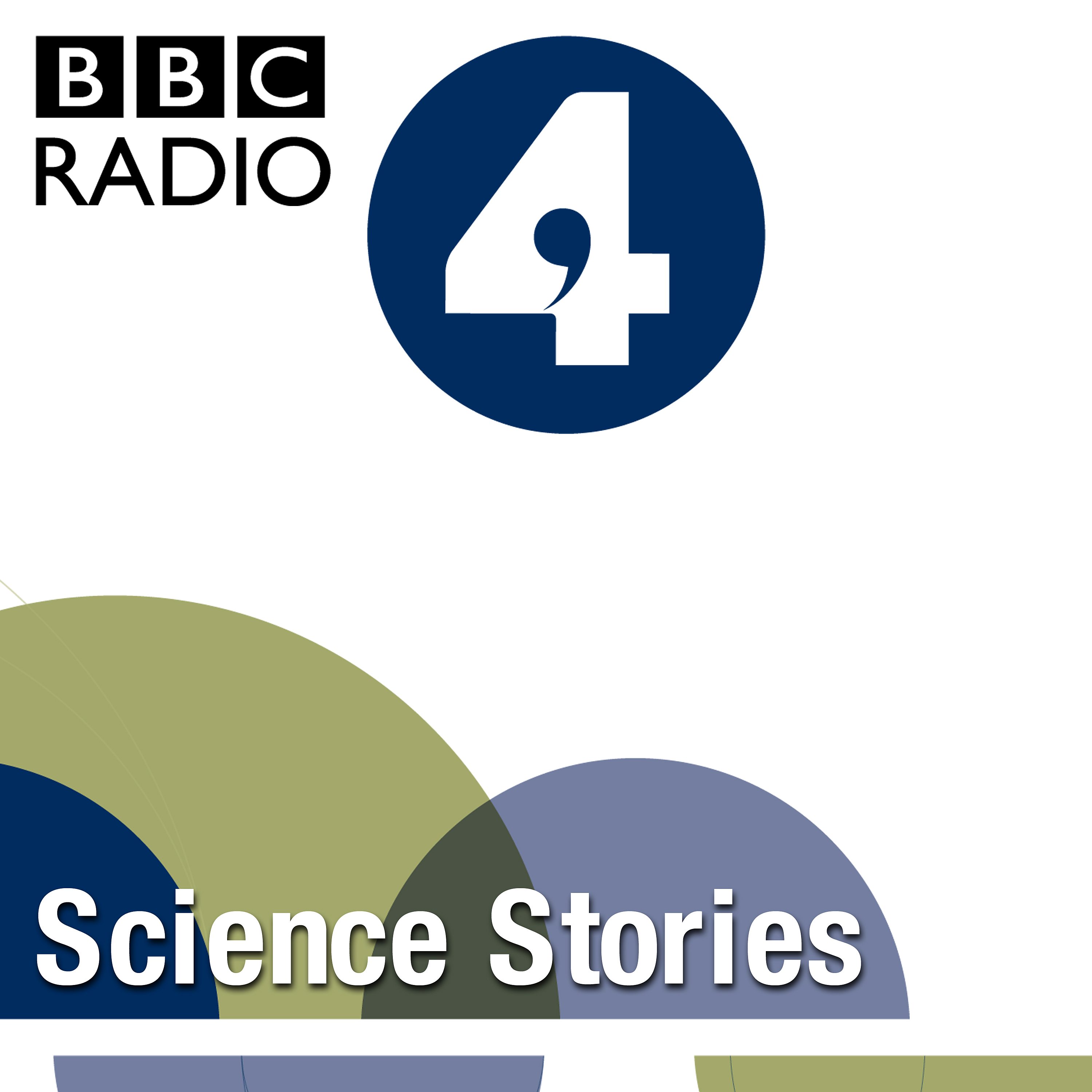
Science StoriesDescartes' DaughterThere's a story told about French philosopher René Descartes and his daughter. He boards a ship for a voyage over the North Sea with a large wooden box which he insists be handled with such great care that the sea captain's curiosity is aroused. When Descartes is out of his cabin the sea captain opens the box and is horrified to find a life sized automaton inside. He's so shocked he throws the "daughter" overboard. Descartes championed a view of nature in which everything happened because of the physical forces acting between its constituent parts: nature as a...
2018-06-2728 min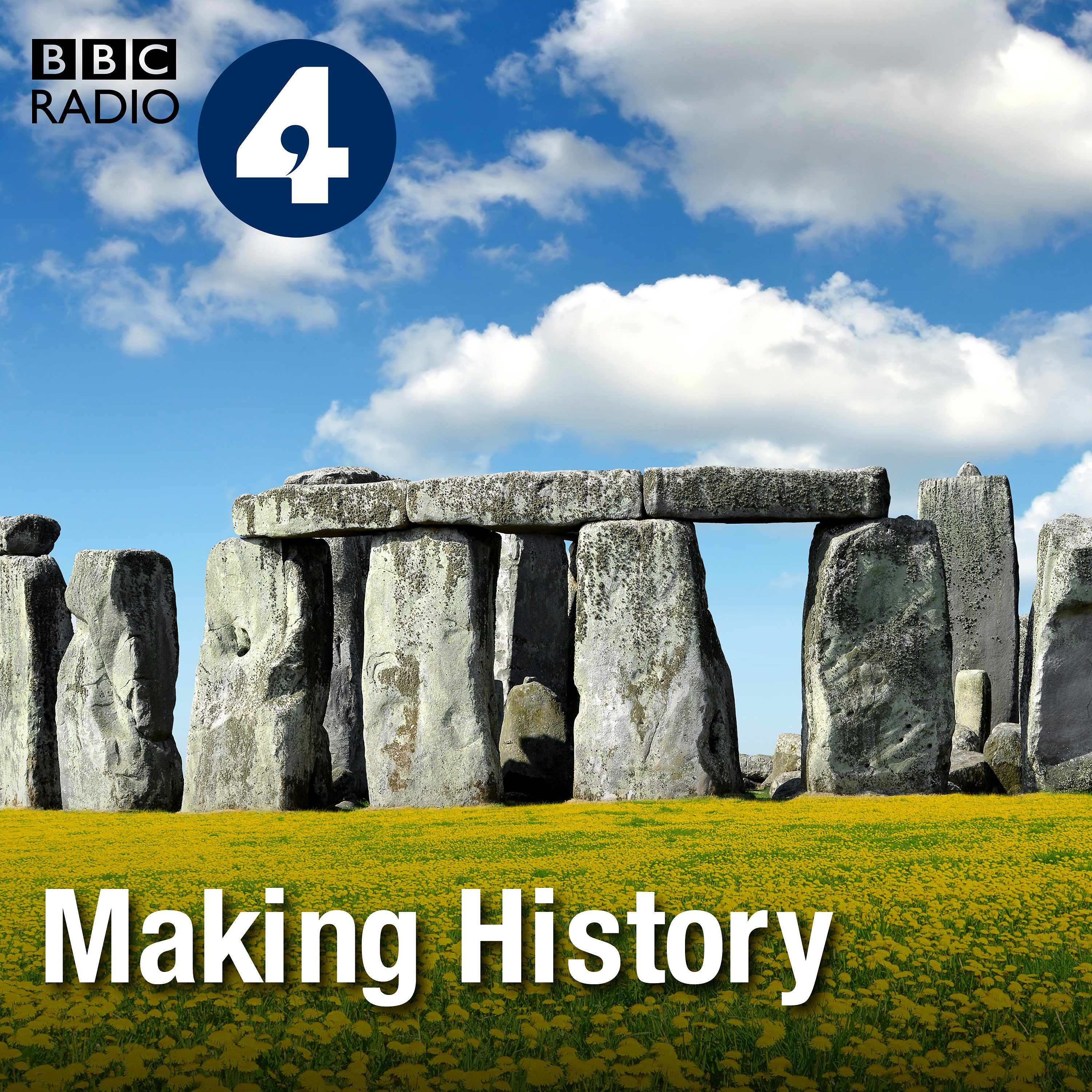
Making History09/08/2016Tom Holland considers historical revelations with a resonance today. He's joined by two archaeologists - Professor Carenza Lewis from the University of Lincoln and David Miles, the former Director of Archaeology and Chief Archaeologist at English Heritage.As combine harvesters tear into Britain's corn crops, David Miles takes us back to the birth of farming and the transformational period that was the Neolithic.Iszi Lawrence changes into her running gear to recreate the Battle of Marathon - in Salford. Can historians and sports' scientists work together to solve a mystery surrounding this famous victory of...
2016-08-0927 min
RSDS RADIO SOCIETÀ DEI SOGNIThe Invention of PhotographyMelvyn Bragg and guests discuss the development of photography in the 1830s, when techniques for 'drawing with light' evolved to the stage where, in 1839, both Louis Daguerre and William Henry Fox Talbot made claims for its invention. These followed the development of the camera obscura, and experiments by such as Thomas Wedgwood and Nicéphore Niépce, and led to rapid changes in the 1840s as more people captured images with the daguerreotype and calotype. These new techniques changed the aesthetics of the age and, before long, inspired claims that painting was now dead.WithSimon Sc...
2016-07-0748 min
In Our TimeThe Invention of PhotographyMelvyn Bragg and guests discuss the development of photography in the 1830s, when techniques for 'drawing with light' evolved to the stage where, in 1839, both Louis Daguerre and William Henry Fox Talbot made claims for its invention. These followed the development of the camera obscura, and experiments by such as Thomas Wedgwood and Nicéphore Niépce, and led to rapid changes in the 1840s as more people captured images with the daguerreotype and calotype. These new techniques changed the aesthetics of the age and, before long, inspired claims that painting was now dead.WithSi...
2016-07-0748 min
In Our Time: ScienceThe Invention of PhotographyMelvyn Bragg and guests discuss the development of photography in the 1830s, when techniques for 'drawing with light' evolved to the stage where, in 1839, both Louis Daguerre and William Henry Fox Talbot made claims for its invention. These followed the development of the camera obscura, and experiments by such as Thomas Wedgwood and Nicéphore Niépce, and led to rapid changes in the 1840s as more people captured images with the daguerreotype and calotype. These new techniques changed the aesthetics of the age and, before long, inspired claims that painting was now dead.WithSi...
2016-07-0748 min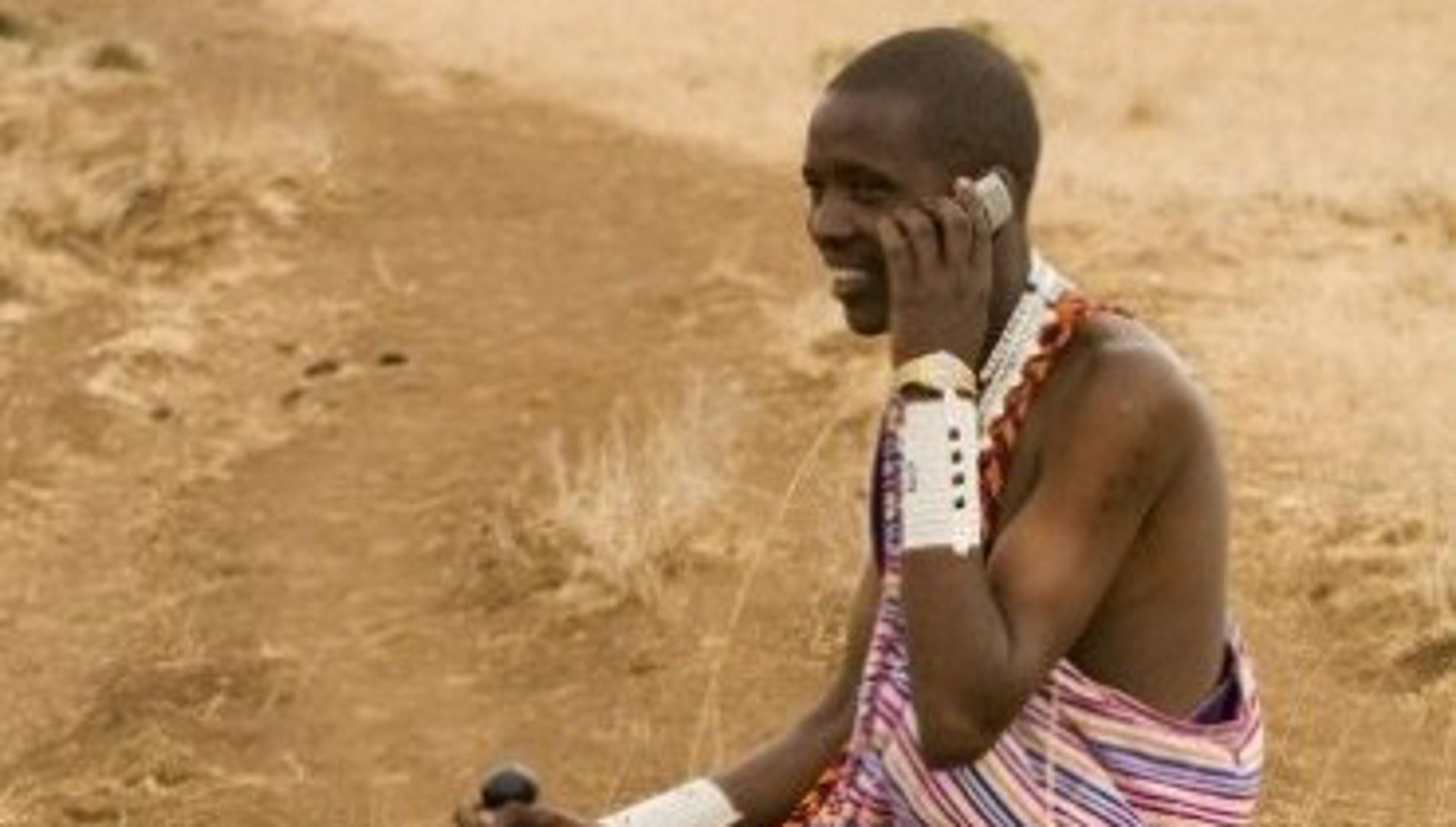
Objects in MotionSimon Schaffer - Soft Matter and Mobile ObjectsSimon Schaffer (University of Cambridge)
Soft matter and mobile objects
2016-01-0445 min
Objects in MotionSimon Schaffer - Soft Matter and Mobile ObjectsSimon Schaffer (University of Cambridge)
Soft matter and mobile objects
2016-01-0445 min
In Our TimeVoyages of James CookMelvyn Bragg and guests discuss the scientific advances made in the three voyages of Captain James Cook, from 1768 to 1779. Cook's voyages astonished Europeans, bringing back detailed knowledge of the Pacific and its people, from the Antarctic to the Bering Straits. This topic is one of more than a thousand different ideas suggested by listeners in October and came from Alysoun Hodges in the UK, Fiachra O'Brolchain in Ireland, Mhairi Mackay in New Zealand, Enzo Vozzo in Australia, Jeff Radford in British Columbia and Mark Green in Alaska. With Simon Schaffer
Professor of the History of...
2015-12-0347 min
RSDS RADIO SOCIETÀ DEI SOGNIVoyages of James CookMelvyn Bragg and guests discuss the scientific advances made in the three voyages of Captain James Cook, from 1768 to 1779. Cook's voyages astonished Europeans, bringing back detailed knowledge of the Pacific and its people, from the Antarctic to the Bering Straits. This topic is one of more than a thousand different ideas suggested by listeners in October and came from Alysoun Hodges in the UK, Fiachra O'Brolchain in Ireland, Mhairi Mackay in New Zealand, Enzo Vozzo in Australia, Jeff Radford in British Columbia and Mark Green in Alaska. With Simon SchafferProfessor of the History of...
2015-12-0347 min
Conspiracy and DemocracySimon Schaffer - 27 October 2015 - Imitation Games: Conspiratorial Sciences and Intelligent MachinesImitation Games: Conspiratorial Sciences and Intelligent Machines
A public lecture by Professor Simon Schaffer (University of Cambridge)
Please note the later start time of 5.30pm for this lecture.
Abstract
Influential public declarations about the normative system of the sciences produced in the mid-twentieth century by authorities such as J D Bernal ('The social function of science', 1939) and R K Merton ('Science and technology in a democratic order', 1942) urged the fundamental contrast between science and secrecy: what Merton significantly labeled 'communism' meant that scientists must and did publicise and share their work as widely as possible. A decade later, at a...
2015-11-051h 18
Conspiracy and DemocracySimon Schaffer - 27 October 2015 - Imitation Games: Conspiratorial Sciences and Intelligent MachinesImitation Games: Conspiratorial Sciences and Intelligent Machines
A public lecture by Professor Simon Schaffer (University of Cambridge)
Please note the later start time of 5.30pm for this lecture.
Abstract
Influential public declarations about the normative system of the sciences produced in the mid-twentieth century by authorities such as J D Bernal ('The social function of science', 1939) and R K Merton ('Science and technology in a democratic order', 1942) urged the fundamental contrast between science and secrecy: what Merton significantly labeled 'communism' meant that scientists must and did publicise and share their work as widely as possible. A decade later, at a...
2015-11-051h 18
TORCH | The Oxford Research Centre in the HumanitiesLeviathan and the Air Pump: HighlightsHistorians of Science David Wootton and Michael Hunter review the controversial book 50 years on Robert Boyle's air-pump experiments in 1659 provoked a lively debate over the possibility of a vacuum. The air-pump, a complicated and expensive device, became an emblem of the new experimental science that was promoted by the Royal Society. However, the philosopher Thomas Hobbes challenged both the validity of Boyle’s experiment and the philosophical foundations of this new approach to science.
In their controversial book Leviathan and the Air-Pump (1985) Steven Shapin and Simon Schaffer took up Hobbes’s case, arguing that experimental findings depend for their validity on t...
2015-05-2804 min
TORCH | The Oxford Research Centre in the HumanitiesLeviathan and the Air Pump: Thirty Years OnThe historian of science David Wootton reviews the controversial dispute between Robert Boyle and Thomas Hobbes, followed by a reply from Boyle's biographer Michael Hunter Robert Boyle's air-pump experiments in 1659 provoked a lively debate over the possibility of a vacuum. The air-pump, a complicated and expensive device, became an emblem of the new experimental science that was promoted by the Royal Society. However, the philosopher Thomas Hobbes challenged both the validity of Boyle’s experiment and the philosophical foundations of this new approach to science. In their controversial book Leviathan and the Air-Pump (1985) Steven Shapin and Simon Schaffer took up Ho...
2015-05-1255 min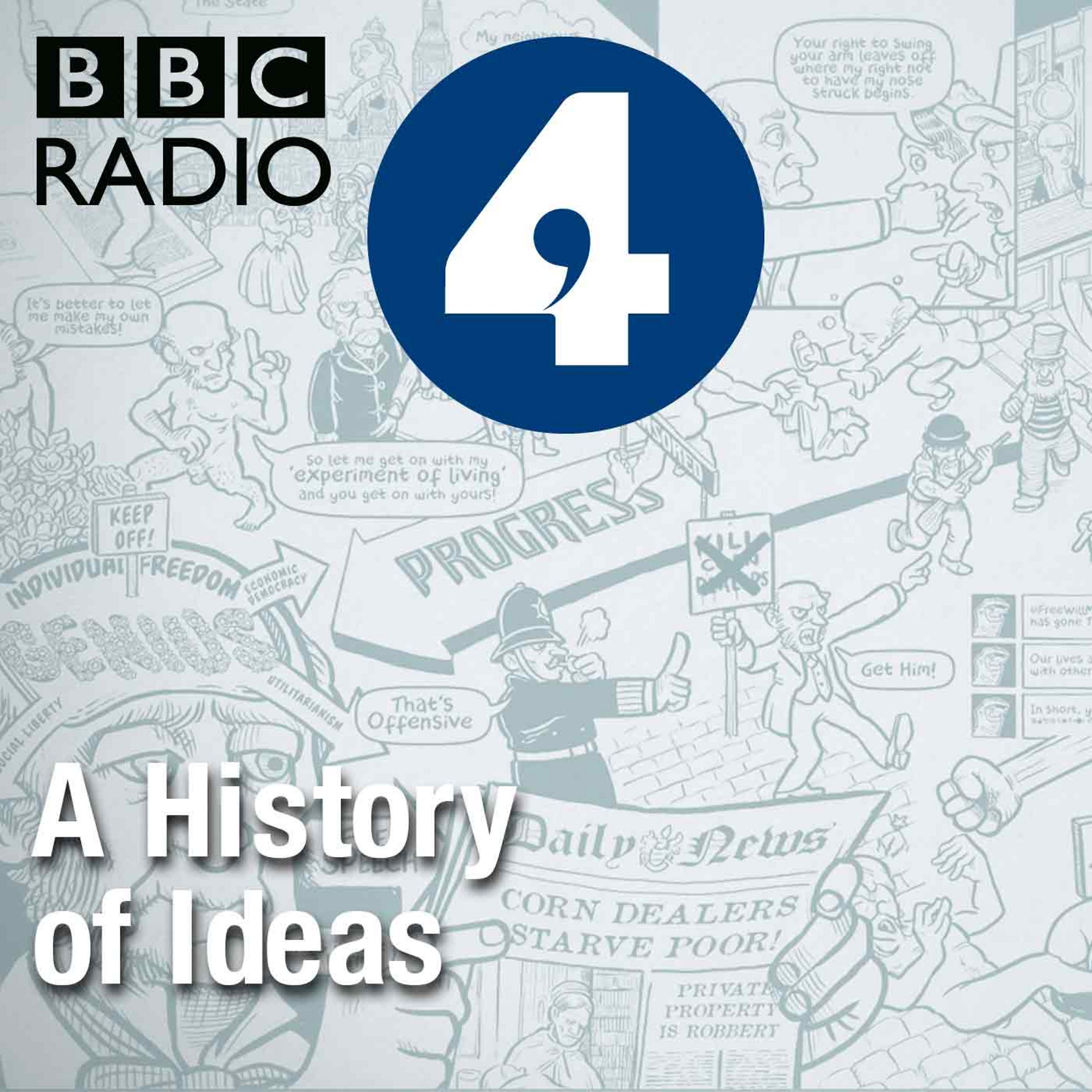
A History of IdeasSimon Schaffer on humans, apes and Carl LinnaeusSimon Schaffer is interested in the human species in general and one member of it in particular. Carl Linnaeus was a Swedish botanist and zoologist who set out the basic structure of how we name and understand life on earth. In doing so he broached the thorny question of where humans should sit among the species of the earth. A hundred years before Darwin he correctly placed us among the apes. Simon examines that relationship to see the things that mark our similarities and our differences. Simon comes face to face with 'Jock', an adult Gorilla at Bristol Zoo...
2015-01-2013 min
A History of IdeasWhat Makes Us Human?A new history of ideas presented by Melvyn Bragg but told in many voices.
Melvyn is joined by four guests with different backgrounds to discuss a really big question. This week he's asking What makes us human?
Helping him answer it are philosopher Barry Smith, classicist Catharine Edwards, historian Simon Schaffer and theologian Giles Fraser.
For the rest of the week Barry, Catharine, Simon and Giles will take us further into the history of ideas about being human with programmes of their own. Between them they will examine the evolution of language, the Stoic philosopher Seneca, the classification of...
2015-01-1912 min
The Fitzwilliam Museum Podcasts4. Charcot and the Shop Window (Part 2)In the second part of Episode 4, Simon Schaffer focuses on the work of Jean-Martin Charcot in relation to the idea of mannequins and the development of the shop window mannequin. This is the second of two parts.
2014-12-0908 min
The Fitzwilliam Museum Podcasts4. Automata (Part 1)In the first part of Episode 4 in the Silent Partners podcast series, Simon Schaffer, Professor of the History of Science in Cambridge University discusses automata and the uncanny nature of artificial figures. This podcast is the first of two parts.
2014-12-0917 min
A History of IdeasHistorian Simon Schaffer on Beauty and EvolutionHistorian of science Simon Schaffer is interested in the purpose of beauty within evolutionary explanations. Taking the ideas of Charles Darwin as his starting point, he wants to know how and why the capacity to see beauty evolved and whether this powerful, fleeting and apparently most useless of attributes can really have an evolutionary explanation. Simon talks to neuroscientist and biologist Stephen Rose and film-maker and anthropologist Chris Wright about whether Darwin really can explain why he finds Mahler's 5th Symphony beautiful.This programme is part of a week of programmes looking at the history of ideas...
2014-11-2012 min
A History of IdeasWhy Are Things Beautiful?A new history of ideas presented by Melvyn Bragg but told in many voices.Melvyn is joined by four guests with different backgrounds to discuss a really big question. This week he's asking 'Why are things beautiful?'Helping him answer it are Mathematician Vicky Neale, historian of science Simon Schaffer and philosophers Barry Smith and Angie Hobbs.For the rest of the week Vicky, Simon, Barry and Angie will take us further into the history of ideas about beauty with programmes of their own.Between them they will examine the...
2014-11-1711 min
Multimedia LecturesWarfare in the East and West over the last thousand yearsA short talk in 1999 by Simon Schaffer as part of the background to the Channel Four series 'The Day the World Took Off', broadcast by Channel 4 in 2000, and filmed by Windfall films. With kind permission of Windfall Films and the presenter.
2014-09-1014 min
Multimedia LecturesThe steam engine and industrializationA short talk in 1999 by Simon Schaffer as part of the background to the Channel Four series 'The Day the World Took Off', broadcast by Channel 4 in 2000, and filmed by Windfall films. With kind permission of Windfall Films and the presenter.
2014-09-1001 min
Multimedia LecturesThe divergence of systems of warfare east and west and their effectsA short talk in 1999 by Simon Schaffer as part of the background to the Channel Four series 'The Day the World Took Off', broadcast by Channel 4 in 2000, and filmed by Windfall films. With kind permission of Windfall Films and the presenter.
2014-09-1009 min
Multimedia LecturesThe complex logistics of eighteenth and nineteenth century warfareA short talk in 1999 by Simon Schaffer as part of the background to the Channel Four series 'The Day the World Took Off', broadcast by Channel 4 in 2000, and filmed by Windfall films. With kind permission of Windfall Films and the presenter.
2014-09-1005 min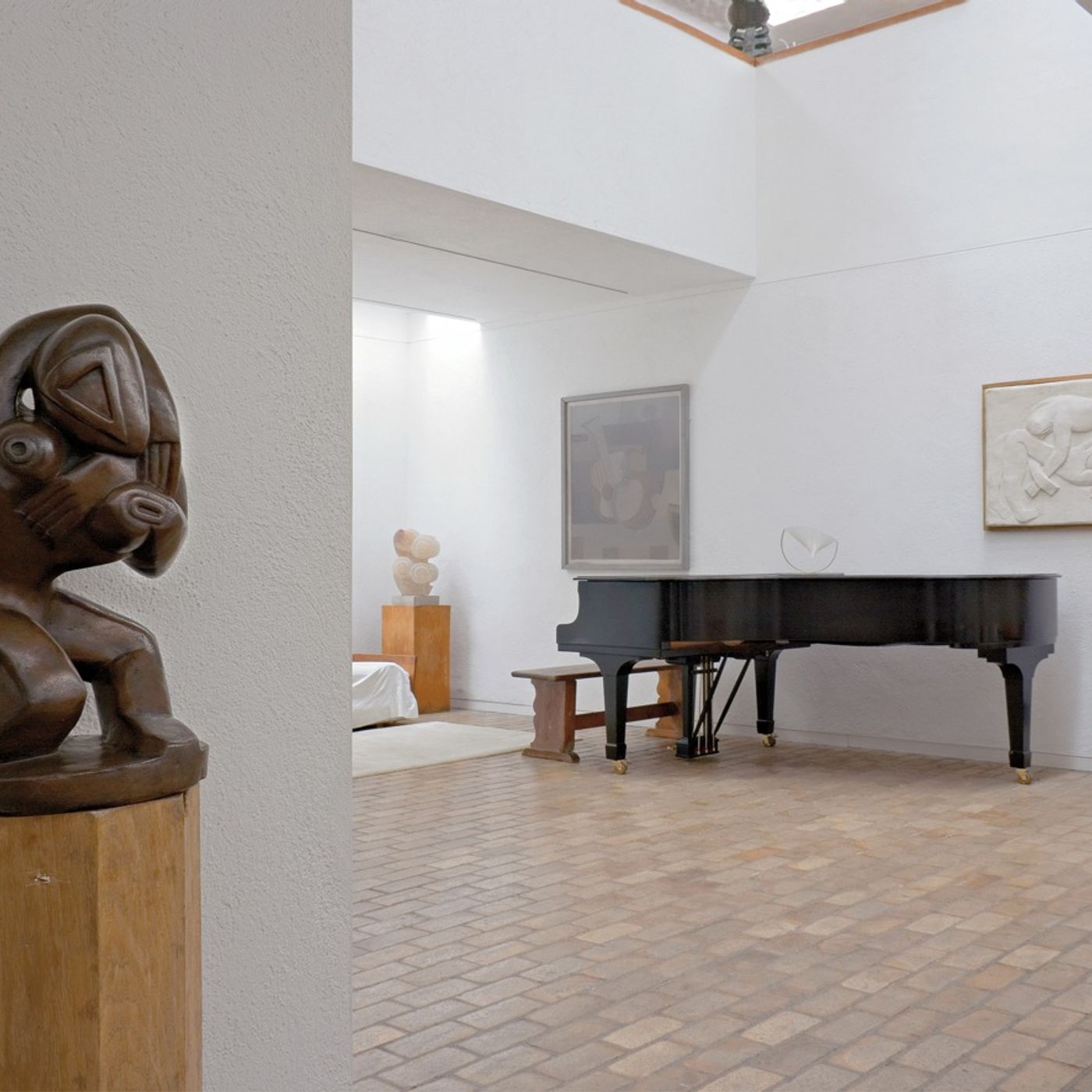 2014-07-0340 min
2014-07-0340 min
In Our Time: ScienceRobert BoyleMelvyn Bragg and his guests discuss the life and work of Robert Boyle, a pioneering scientist and a founder member of the Royal Society. Born in Ireland in 1627, Boyle was one of the first natural philosophers to conduct rigorous experiments, laid the foundations of modern chemistry and derived Boyle's Law, describing the physical properties of gases. In addition to his experimental work he left a substantial body of writings about philosophy and religion; his piety was one of the most important factors in his intellectual activities, prompting a celebrated dispute with his contemporary Thomas Hobbes.With:
2014-06-1246 min
Field Notes SeminarField Notes - 20 January 2014 - Physics, Anthropology and the Cultural History of Mechanics, 1870-1930Dr Richard Staley (University of Cambridge)
Discussant: Professor Simon Schaffer (University of Cambridge)
2014-01-2754 min
Climate Histories SeminarClimate Histories - 27 November 2013 - Official Accounts that Reach beyond AcademiaThe Challenge of Producing Official Accounts that Rearch beyond Academia
Forum Discussion:
Roz Almond (Forum for Environment and Sustainability, University of Cambridge)
Professor Simon Schaffer (History and Philosophy of Science, University of Cambridge)
Marcos Pelanur (Sustainable Engineering, University of Cambridge)
Rob Doubleday/tbc (Centre for Science and Policy, Cambridge)
2013-12-091h 36
The Board of Longitude projectProfessor Simon Schaffer and Richard Dunn: IntroductionIntroduction
Richard Dunn (Royal Museums Greenwich) and Simon Schaffer (University of Cambridge)
Cambridge University Library holds the complete papers of the Board of Longitude through the eighteenth century until its abolition in 1828. This collection throws a vivid light on the role of the British state in encouraging invention and discovery, on the energetic culture of technical ingenuity in the long eighteenth century, and on many aspects of exploration and maritime travel in the Pacific Ocean and the Arctic.
This meeting marks the online release of a digitised version of this archive and many related manuscript and printed materials of crucial...
2013-07-2311 min
In Our Time: CultureThe Invention of RadioMelvyn Bragg and his guests discuss the invention of radio. In the early 1860s the Scottish physicist James Clerk Maxwell derived four equations which together describe the behaviour of electricity and magnetism. They predicted the existence of a previously unknown phenomenon: electromagnetic waves. These waves were first observed in the early 1880s, and over the next two decades a succession of scientists and engineers built increasingly elaborate devices to produce and detect them. Eventually this gave birth to a new technology: radio. The Italian Guglielmo Marconi is commonly described as the father of radio - but many other figures...
2013-07-0441 min
In Our Time: ScienceThe Invention of RadioMelvyn Bragg and his guests discuss the invention of radio. In the early 1860s the Scottish physicist James Clerk Maxwell derived four equations which together describe the behaviour of electricity and magnetism. They predicted the existence of a previously unknown phenomenon: electromagnetic waves. These waves were first observed in the early 1880s, and over the next two decades a succession of scientists and engineers built increasingly elaborate devices to produce and detect them. Eventually this gave birth to a new technology: radio. The Italian Guglielmo Marconi is commonly described as the father of radio - but many other figures...
2013-07-0441 min
Nunhead American Radio with Lewis Schaffer20 May 2013 Nunhead American Radio with Lewis Schaffer. Guest Simon Munnery.<div class="posthaven-post-body"><p>20 May 2013 Munnery Nunhead American Radio with Lewis Schaffer. The only radio program for Americans living in Nunhead and for all Nunheaders, with a special focus on the increasingly in-demand area of Nunhead Heights. <br></p><p> <div class="posthaven-file posthaven-file-audio posthaven-file-state-processed" id="posthaven_audio_943788" >
<audio controls src="https://phaven-prod.s3.amazonaws.com/files/audio_part/encoded/943788/_c51iFnCRi1eeHuA3G81o8I8mqg/Nunhead_American_Radio_20th_May_2013.mp3" type="audio/mpeg"></audio> <a class="posthaven-file-download" download href="https://ph...
2013-05-2041 min
In Our Time: ScienceAbsolute ZeroIn a programme first broadcast in 2013, Melvyn Bragg and his guests discuss absolute zero, the lowest conceivable temperature. In the early eighteenth century the French physicist Guillaume Amontons suggested that temperature had a lower limit. The subject of low temperature became a fertile field of research in the nineteenth century, and today we know that this limit - known as absolute zero - is approximately minus 273 degrees Celsius. It is impossible to produce a temperature exactly equal to absolute zero, but today scientists have come to within a billionth of a degree. At such low temperatures physicists have discovered a num...
2013-03-0742 min
Field Notes SeminarField Notes - 28 February 2013 - Regimentation. Proof/Discipline, and Military Influence in 19th Century ArchaeologyChris Evans (Cambridge Archaeological Unit, University of Cambridge)
Discussant: Prof Simon Schaffer (Department of History and Philosophy of Science, University of Cambridge)
Abstract
This paper will generally explore the influence of military procedures and personal experience thereof in 19th and early 20th century British archaeological fieldwork. Aside from tracing this as a practical legacy (survey techniques, the grid and organisation of labour, etc.), it will consider its impact upon notions of ‘disciplining the past’ (e.g. Wheeler) and, particularly, how Pitt Rivers’ constitution of proof arose from his army background (ordnance adjudication and legal prosecution).
2013-03-051h 15
The Future UniversitySimon Schaffer: Disciplines and DisorientationSimon Schaffer: Disciplines and Disorientation
The Future University
Simon Schaffer (HPS, Cambridge)
Disciplines and Disorientation
2011-09-2241 min
In Our Time: ScienceCalculusMelvyn Bragg discusses the epic feud between Sir Isaac Newton and Gottfried Leibniz over who invented an astonishingly powerful new mathematical tool - calculus. Both claimed to have conceived it independently, but the argument soon descended into a bitter battle over priority, plagiarism and philosophy. Set against the backdrop of the Hanoverian succession to the English throne and the formation of the Royal Society, the fight pitted England against Europe, geometric notation against algebra. It was fundamental to the grounding of a mathematical system which is one of the keys to the modern world, allowing us to do everything...
2009-09-2442 min
NOVA | PBSThe Coldest FrontierSimon Schaffer is a historian of science at the University of Cambridge, England. In this podcast, he discusses the search for absolute zero and its impact on science and technology.
Podcast produced by David Levin. Interview by David Dugan. Funding for NOVA is provided by ExxonMobil, David H. Koch, the Howard Hughes Medical Institute, the Corporation for Public Broadcasting, and public television viewers.
To learn more about the race to conquer cold, visit our Web site at pbs.org/nova/zero
2008-12-1904 min
In Our Time: ScienceHeatMelvyn Bragg and guests discuss the history of scientific ideas about heat. As anyone who’s ever burnt their hand will testify – heat is a pretty commonplace concept. Cups of coffee cool down, microwaves reheat them, water boils at 100 degrees and freezes on cold winter nights.Behind the everyday experience of hot things lies a complex story of ideas spread across Paris, Manchester and particularly Glasgow. It’s a story of brewing vats and steam engines, of fridges, thermometers and the heat death of the universe. But most importantly, it was the understanding and harnessing of heat that helped make t...
2008-12-0442 min
In Our Time: ScienceThe Laws of MotionMelvyn Bragg and guests discuss Newton’s Laws of Motion. In 1687 Isaac Newton attempted to explain the movements of everything in the universe, from a pea rolling on a plate to the position of the planets. It was a brilliant, vaultingly ambitious and fiendishly complex task; it took him three sentences. These are the three laws of motion with which Newton founded the discipline of classical mechanics and conjoined a series of concepts - inertia, acceleration, force, momentum and mass - by which we still describe the movement of things today. Newton’s laws have been refined over the year...
2008-04-0342 min
In Our Time: ScienceOxygenMelvyn Bragg discusses the discovery of Oxygen by Joseph Priestley and Antoine Lavoisier. In the late 18th century Chemistry was the prince of the sciences – vital to the economy, it shaped how Europeans fought each other, ate with each other, what they built and the medicine they took. And then, in 1772, the British chemist, Joseph Priestley, stood in front of the Royal Society and reported on his latest discovery: “this air is of exalted nature…A candle burned in this air with an amazing strength of flame; and a bit of red hot wood crackled and burned with a prodig...
2007-11-1542 min
In Our Time: ScienceOpticsMelvyn Bragg and guests discuss the history of optics. From telescopes to microscopes, from star-gazing to the intimacies of a magnified flea. As Galileo turned his telescope to the heavens in the early 1600s, Kepler began to formulate a theory of optics. The new and improving instruments went hand in hand with radical new ideas about how we see and what we see. Spectacles allowed scholars to study long into the evening (and into old age), while giant telescopes, up to 100 feet long, led to the discovery of planets and attempts to map the universe. The craze for optical...
2007-03-0128 min
In Our Time: ScienceAstronomy and EmpireMelvyn Bragg and guests discuss the relationship between astronomy and the British Empire. The 18th century explorer and astronomer James Cook wrote: 'Ambition leads me not only farther than any other man has been before me, but as far as I think it possible for man to go'. Cook's ambition took him to the far reaches of the Pacific and led to astronomical observations which measured the distance of Venus to the Sun with unprecedented accuracy. Cook's ambition was not just personal and astronomical. It represented the colonial ambition of the British Empire which was linked inextricably with science...
2006-05-0442 min
In Our Time: ScienceElectrickeryMelvyn Bragg and guests discuss the dawn of the age of electricity. In Gulliver's Travels, published in 1726, Jonathan Swift satirised natural philosophers as trying to extract sunbeams from cucumbers. Perhaps he would have been surprised, or even horrified, by the sheer force of what these seemingly obscure experimentalists were about to unleash on society. Electricity soon reached into all areas of 18th century life, as Royal Society Fellows vied with showmen and charlatans to reveal its wonders to the world. It was, claimed one commentator, 'an entertainment for Angels rather than for Men'. Electricity also posed deep questions about...
2004-11-0442 min